Despite the restrained innovation drive within the sector, there were several novelties at this year's Fruit Attraction in Madrid, Spain. In this photo report, we take a closer look at some overarching trends and unusual innovations.
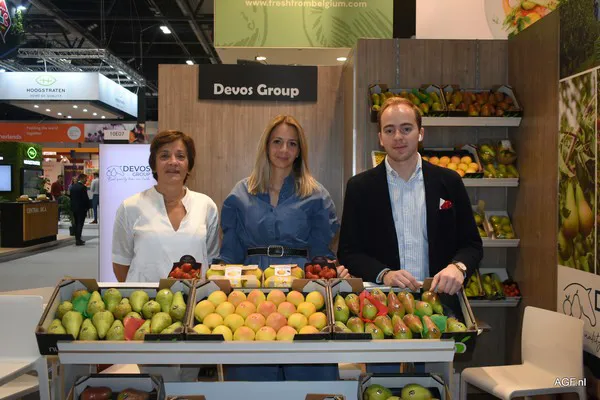
The Rubis Gold apple was one of the products displayed by the Devos Group.
New product concepts
As in previous years, new product concepts and a variety of innovations were highlighted this year. Some of these were nominated for this year's Innovation Award. A good example is the club apple concept Rubis Gold, which originated a few years ago in France. It is now gaining a foothold in Belgium and soon Spain. New opportunities are also emerging in the area of product refinement: the Spanish company, Bonnysa, for instance, has launched broccoli-based guacamole.
This year's Innovation Award fresh product category winner was Surinver's fruit-flavored pumpkin desserts. In the F&V industry category, the award went to Syngenta. Its new product, Persicop, is a microorganism-derived organic nitrogen binder for fruits and vegetables. Granada La Palma was awarded in the Sustainability and Engagement category. The company used cherry tomatoes to develop a vegan burger called La Parcela. The award winners received €2,000 each.
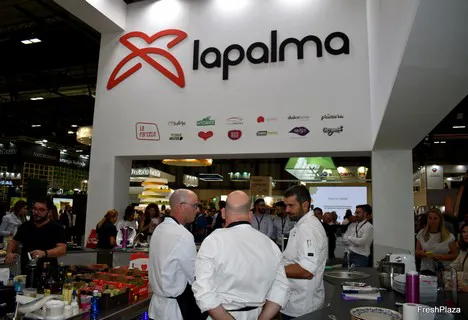
Show cooking at the La Palma stand, highlighting the new La Parcela vegan burger.
Packaging: cardboard and biodegradable labels
Post-pandemic, the trend toward sustainable packaging seems to be reviving. Paper and cardboard packaging is increasingly replacing conventional plastic. Not only alternative product packaging but also sustainable, contemporary labeling solutions are being sought.
Sinclair's new biodegradable labels, nominated for an Innovation Award, are a good example. Packaging company SoFruPak, which has already won several awards for its future-oriented concepts, launched a new cellulose-coated cardboard tray at the fair. Veripack, a Guillin Group brand, presented a similar innovation.
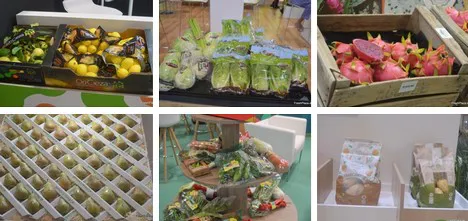
Various products at Fruit Attraction.
Bio(dynamics) gaining ground
In the longer term, production done according to Demeter guidelines seems to be gaining ground in Spain. This trend affects both the main product and smaller products, such as exotics. For example, in the southern Spanish city of Seville, a company will harvest around two million kilos of Demeter citrus this year. They will increase that volume annually over the next few years.
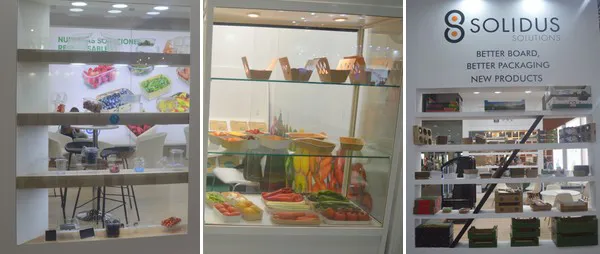
Spain exports most of its Demeter-cultivated products to German-speaking countries, where that label originated. Besides Demeter, "conventional" organic cultivation is gaining importance again. That is being actively promoted, especially by breeding and seed companies, who are marketing new own brands (e.g., Ondine). That, in turn, leads to a wider product range.
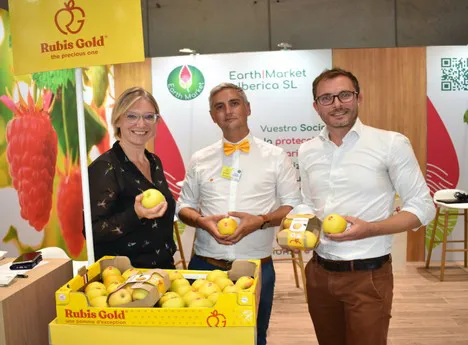
Rubis Gold.
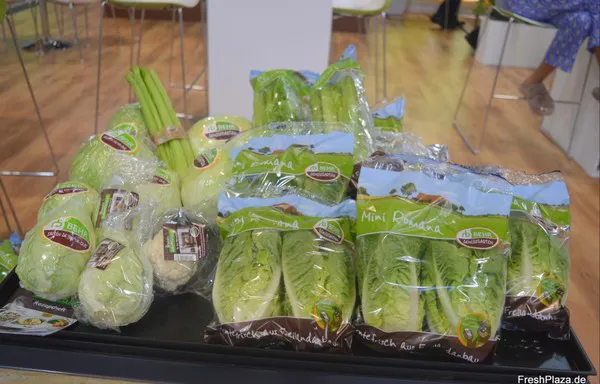
Behr Iberica open field vegetables. This German-based company keeps enriching the market with new, surprising vegetables.
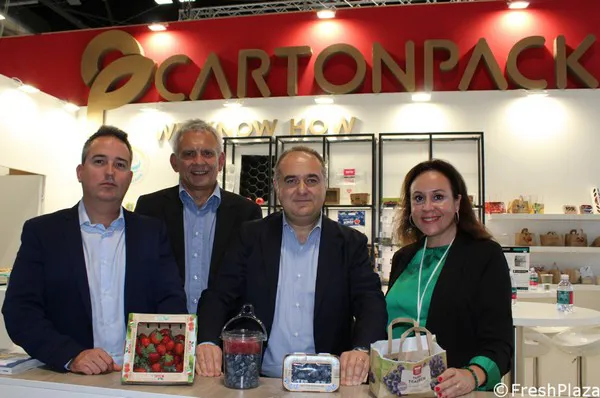
Cardboard packaging from Italy offers a wide range of new packaging solutions made from paper, cardboard, and biodegradable plastic.
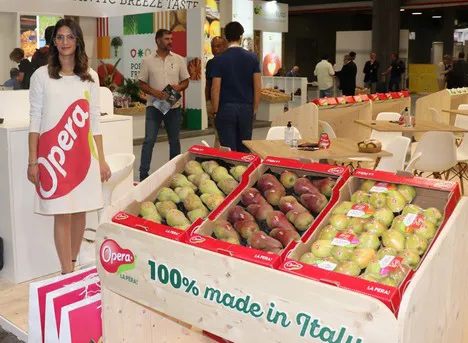
Opera: a modern brand concept for premium Italian pears.
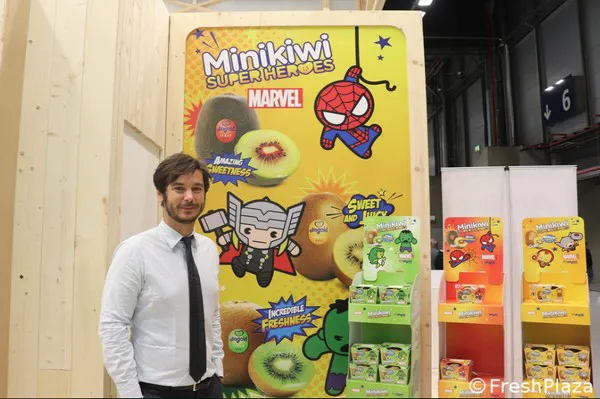
Jingold's mini kiwi.
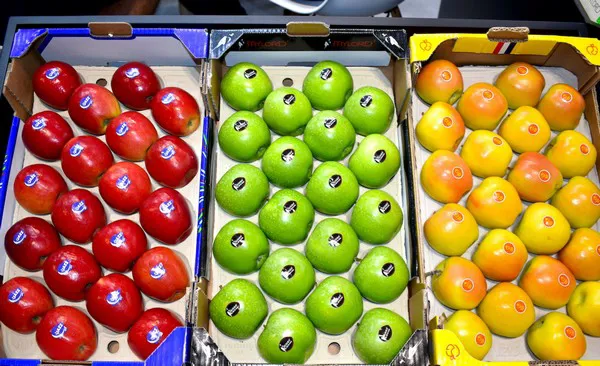
A variety of French apples.
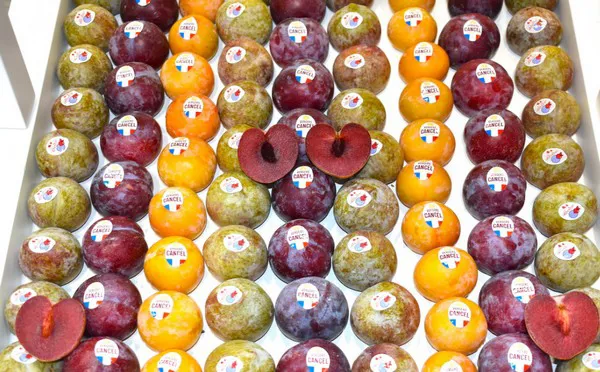
And French plums of countless varieties.
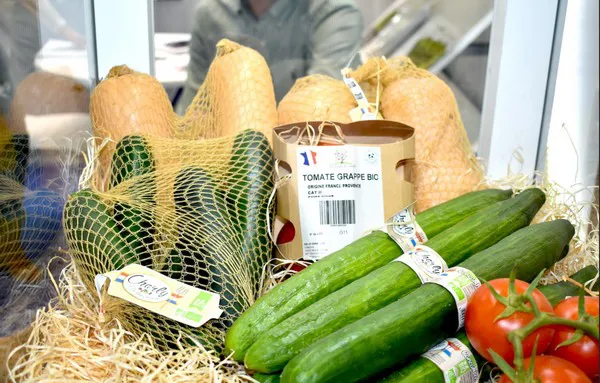
New packaging solutions such as cellulose.
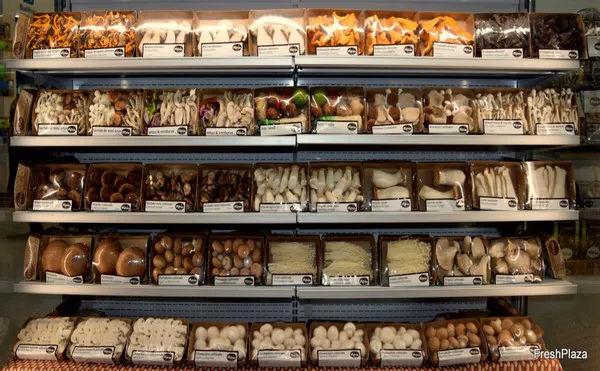
Convenience, or fresh-cut, is becoming an increasingly important topic in the mushroom sector too.
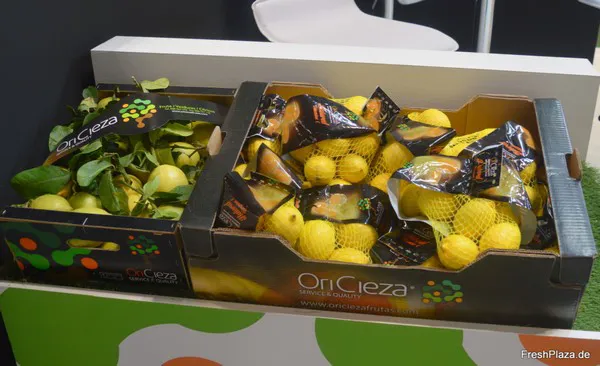
Lemons in nets.
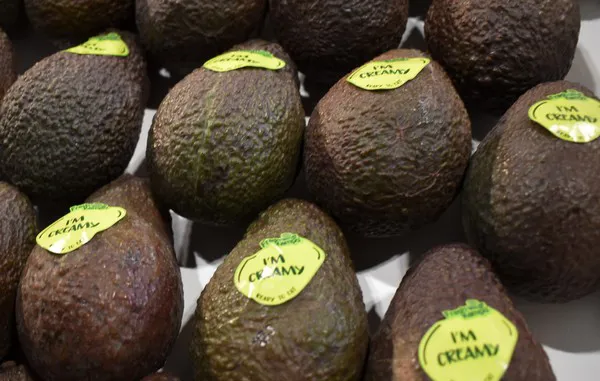
'I'm creamy' is what this new ready-to-eat Euromeridian marketing concept is called.
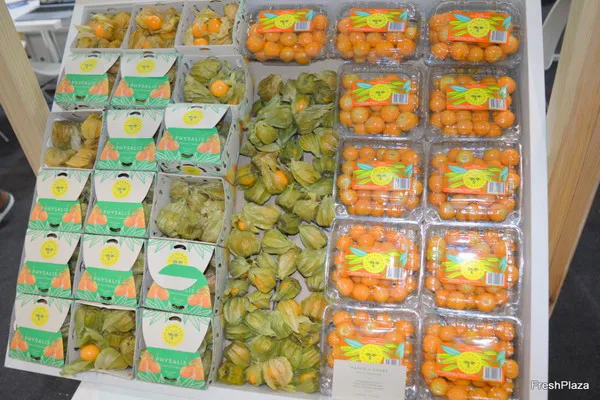
Physalis is gaining popularity in northwestern Europe. Most of this exotic soft fruit comes from Colombia.
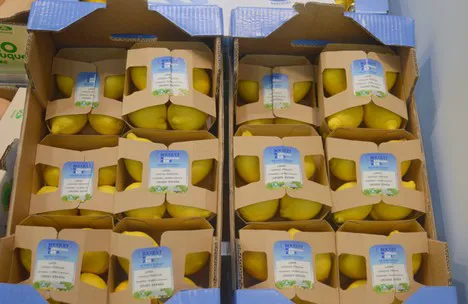
Lemons in sustainable cardboard packaging.
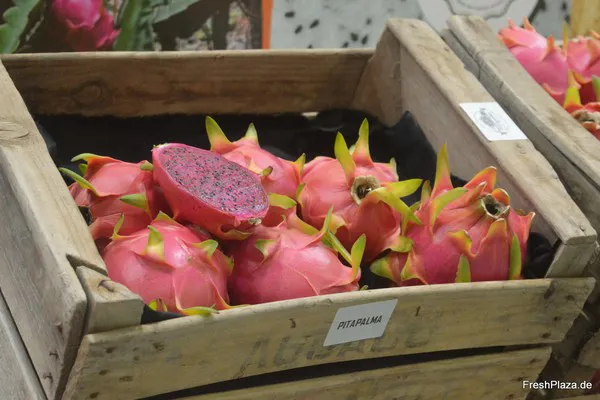
Pitahaya, or dragonfruit, too, is becoming increasingly popular since recently grown in Türkiye.
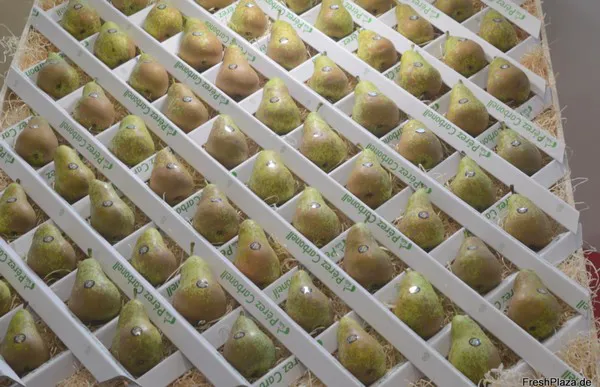
Marketing 2.0: carefully displayed pears.
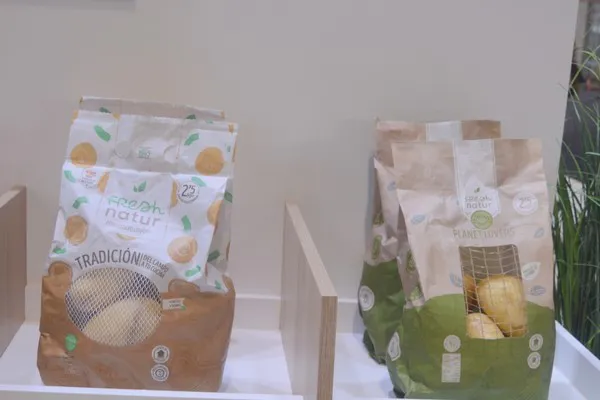
Potatoes, too, are more often being offered in sustainable packaging.
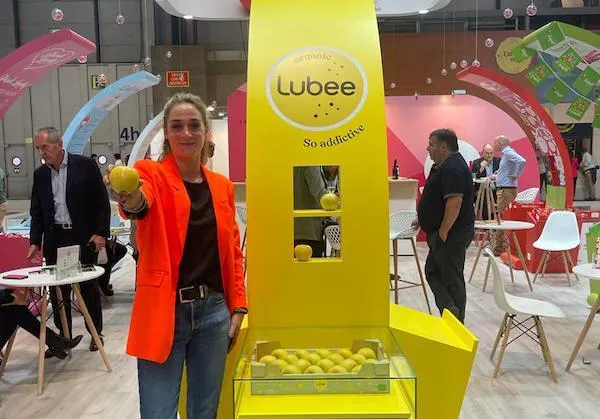
The French Innatys launched a new club apple, Lubee: 100% yellow, 100% organic.
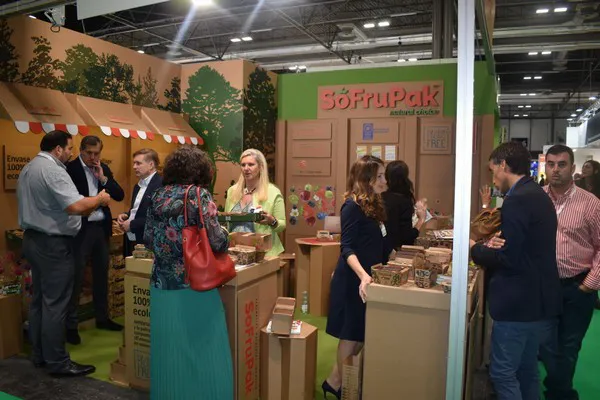
The Polish SoFruPak is a sustainable packaging pioneer and was again nominated for an Innovation Award this year.
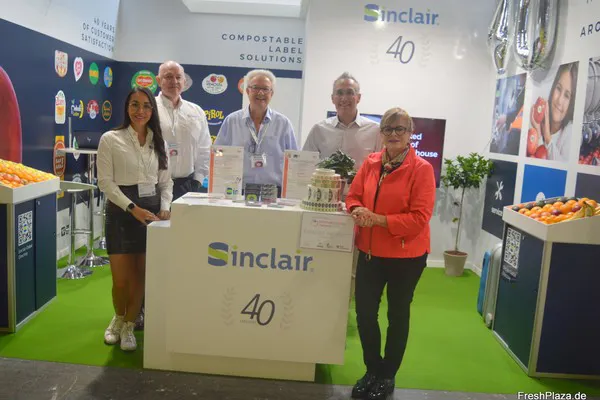
The Sinclair team celebrates the company's 20th anniversary this year. Plus, it was nominated for an Innovation Award.
Click here for the Dutch and Belgian companies' photo report.
Click here for the Spanish companies' photo report.
Click here for the German and Austrian companies' photo report.
Click here for the French businesses' photo report.
Click here for the Italian companies' photo report.
Click here for the Latin American companies' photo report.
Click here for the remaining overseas companies' photo report.
